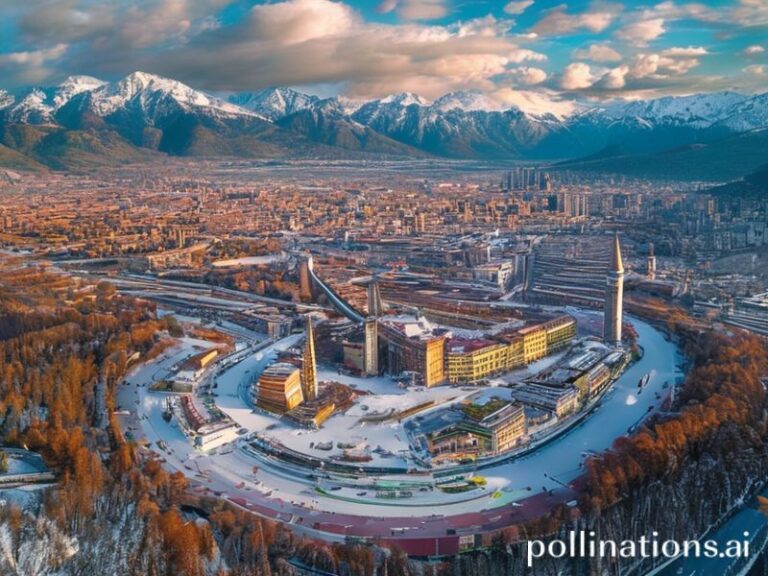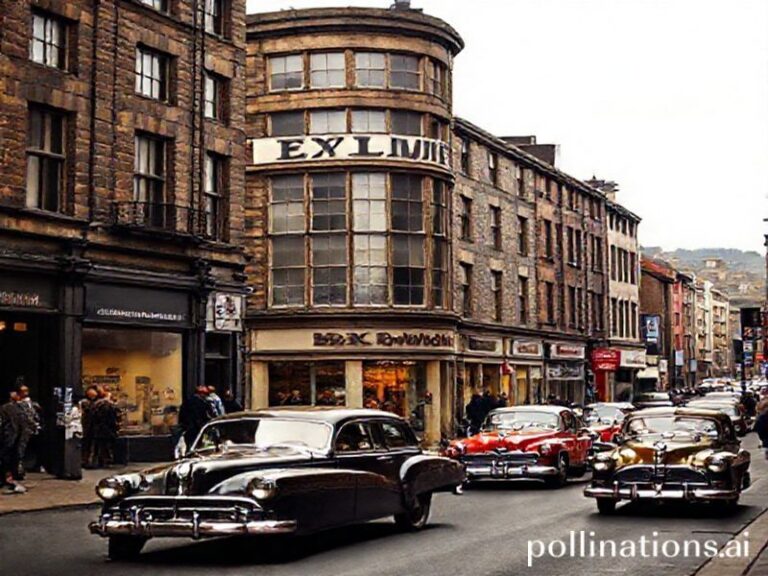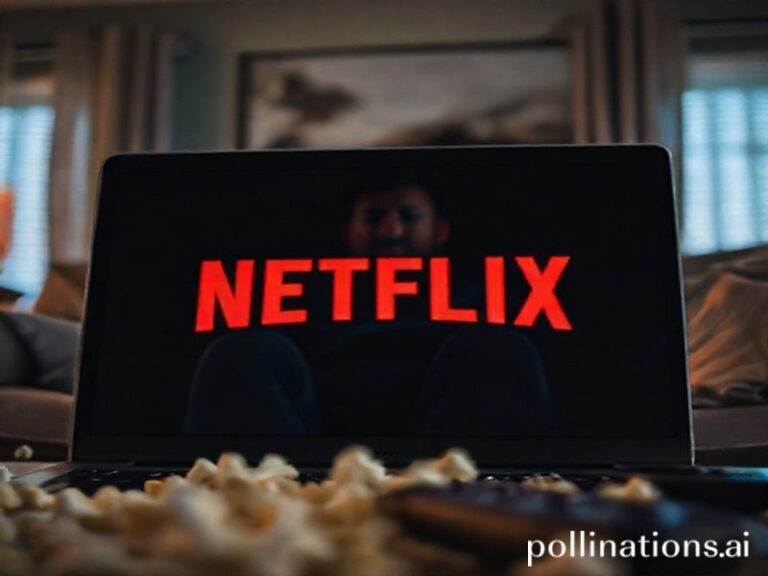Declan Donnelly: Britain’s Cheekiest Soft-Power Weapon in the Streaming Wars
The Curious Imperial Export of Declan Donnelly: How a Geordie Host Became a Soft-Power Asset in the Global End-Times Variety Show
By Our Correspondent, still jet-lagged in the duty-free purgatory of Terminal 3
To the rest of the planet—where Netflix menus groan under K-dramas, Turkish telenovelas, and Nigerian courtroom comedies—the name Declan Donnelly lands like a polite hiccup. Yet the man is quietly Britain’s most reliable cultural emissary, a sort of cardigan-clad cruise missile of affability launched into 180 territories every time ITV hits “distribute.” While Washington exports democracy at gunpoint and Beijing exports surveillance with a smile, London’s last growth industry appears to be Donnelly and his perennially grinning sidekick, Ant McPartlin, selling the illusion that somewhere it’s still 1998 and nobody’s read the climate reports.
From Lagos living rooms to Latvian Airbnbs, Saturday-night clips of “I’m a Celebrity…Get Me Out of Here!” flicker across screens usually reserved for doom-scrolling. There, Donnelly—half of the duo affectionately known as “Ant & Dec” like a budget-friendly off-brand remedy—performs the geopolitically vital task of making British austerity look cuddly. Where once the empire sent gunboats, it now dispatches a 5-foot-6 man in a well-pressed shirt encouraging D-list celebrities to eat kangaroo anus for charity. Progress, of a sort.
International broadcasters adore the format because it is cheaper than war and only mildly more degrading. RTL in Germany rebrands it; AbemaTV in Japan adds more pixelated blur; even stern Scandinavian state channels splice in extra suffering for educational value. Each licensing deal quietly bolsters the UK’s “creative industries” balance sheet—a line item that now outperforms steel, coal, and whatever remains of dignity. Her Majesty’s Government, ever alert to a soft-power opportunity, lists Ant & Dec under the same export category as James Bond and the BBC World Service, presumably in the hope that foreign viewers conflate them into one seamless tapestry of bowler-hatted charm.
Donnelly himself is an unlikely envoy. Born in Newcastle upon Tyne, a city whose chief historical contribution is teaching the world how to survive economic collapse with gallows humor, he perfected the art of appearing eternally surprised by his own success. Watch him in slow motion—say, during a Bushtucker Trial when a cockroach explores his ear canal—and you witness the precise moment British self-deprecation metastasizes into global content. His face registers mild indignation, then immediate forgiveness, as if to say, “Yes, this is absurd, but so is everything else, so let’s crack on.” It’s a facial expression now studied in media schools from São Paulo to Seoul as the gold standard of non-threatening masculinity, somewhere between Mr. Rogers and a Labrador retriever.
The darker joke, of course, is that while Donnelly gamely chuckles through inflatable obstacle courses, the planet outside burns, floods, or votes itself into fresh new autocracies. Yet the ratings hold up, because audiences everywhere crave the same narcotic reassurance: somewhere, people sillier than us are having a worse day on television. In that sense, Donnelly is less entertainer than palliative-care specialist, administering 42-minute doses of managed chaos to viewers who can’t decide whether to laugh or set something on fire.
Even the inevitable scandals—McPartlin’s drink-driving hiatus, the tabloid feeding frenzies—are absorbed into the narrative like minor tremors before the next sponsored giggle. The international fanbase, groomed by years of reality-TV plot twists, processes it as merely another season arc. Brand strategists call this “resilience”; anthropologists might call it collective Stockholm syndrome with commercial breaks.
As COP summits collapse and supply chains snap, Britain’s post-Brexit trade envoys still pack demo reels of Donnelly yelping in a jungle hammock, proof that the nation remains capable of producing something the world actually wants. It’s not quite the Commonwealth 2.0 anyone imagined, but it ships without tariffs and requires only sunscreen and a nondisclosure agreement.
So here’s to Declan Donnelly: accidental diplomat, last export of a shrinking island, and unwitting curator of humanity’s dwindling attention span. Should civilization finally implode, archaeologists of some future civilization will unearth a flash drive labeled “Series 23, Episode 7” and conclude that we were a species terminally high on our own canned laughter. They won’t be wrong. They just won’t be in on the joke.







